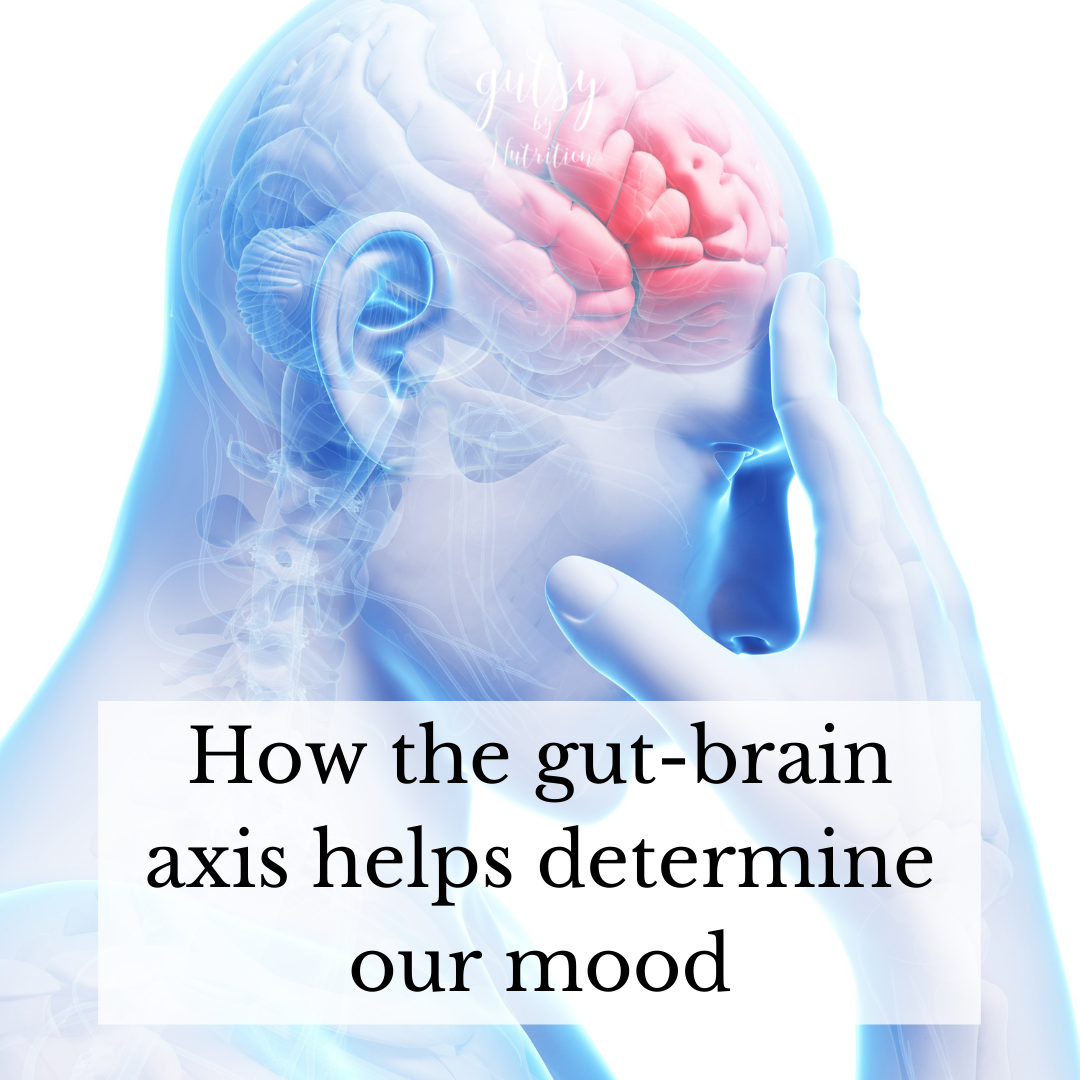How the gut-brain axis helps determines our mood
I've always been fascinated by the relationship between our gut, brain and how we feel – our mood and mental health.
Basically, you need healthy gut and brain function for good mood, a steady personality and optimal brain function.
When you think about it, it's not surprising that what we put into our body and mind impacts our cells, and thus our brain health and mood.
Some common complaints I get in my practice are brain fog, anxiety, depression, an inability to focus, memory loss, fatigue, poor sleep and low motivation.
But did you know that all of these can be signs of inflammation in our brain, which often means inflammation in our gut and the rest of our body?
Here's a list of some key symptoms of neuroinflammation...
Mild neuroinflammation – Brain fog, brain fatigue after eating or chemical exposure, variable mental speed, reduced mental endurance
Moderate neuroinflammation – Depression, drowsiness, lethargy and low motivation, inability to concentrate for long
Severe neuroinflammation – Confusion and disorientation, trembling and twitching, dementia, seizures
If your brain function is impaired, it can lead to poor digestion and vice versa. The body works as a system, so looking at the whole of you is vital to improving your brain function and mental health.
But where does this inflammation come from?
It can come from the gut. Here are some key causes...⠀
Imbalanced gut flora – Studies show a link between low levels of beneficial gut bacteria, high levels or opportunistic and harmful bacteria, and depression along with some psychiatric disorders.
Ensuring you eradicate harmful bacteria, bring opportunistic ones back into balance, and grow good bacteria levels can be key to mental health. Diet is a key part of this, and herbs also play a vital role.
Low neurotransmitter levels – Your gut is your second brain, containing more neurons or brain cells than your brain. A significant amount of chemical messengers or neurotransmitters – which come in the form of proteins and hormones – are made and stored in your gut.
These levels impact your brain’s immune system and inflammation levels there, as well as the multiple ways your neurotransmitters are able to relay important information to keep your brain exercised, like any muscle in your body. Neurotransmitters levels impact brain function, mood, personality, including anxiety and depression.⠀Leaky gut – When poorly digested proteins - caused by poor chewing, insufficient stomach acid and digestive enzymes, poor gallbladder and liver function, eating too many carbs or stress - food, bacteria, parasites, fungi and other pathogens can pass through the junctions in your gut due to intestinal permeability into your blood stream.
The result is systemic inflammation, which can pass through to your brain. Research shows that an inflamed brain can contribute significantly to mood issues, including depression and anxiety. Deficiencies of essential nutrients to healthy brain and mood function can also result. ⠀
Here are the top 5 nutritional deficiencies involved in mood problems:
1. Oxidative stress (having too many free radicals and not enough anti-oxidants to counteract their harmful effects)
Oxidative stress plays a role in anxiety and depression, leading to inflammation, which disintegrates healthy brain function and causes poor mood. Origins include an inflammatory diet, especially excess sugar and refined carbs, processed foods, toxic fats, chemicals and stress. Antioxidants are found in the colourful range of vegetables and fruits.
2. Vitamin B6 deficiency
Vitamin B6 is one of the most important vitamins for mental health because it's a cofactor in the key mood neurotransmitters serotonin, GABA and dopamine. A deficiency can cause anxiety, depression, irritability, confusion, fatigue and PMS. A vitamin B6 deficiency can be due to some drugs, malabsorption and alcoholism. Vitamin B6 is found in wild-caught seafood and meat, beans, nuts, organ meat and leafy greens
3. Zinc deficiency
A zinc deficiency changes the hippocampus and the prefrontal cortex of the brain. It also leads to excessive amounts of glutamate activity, causing brain inflammation and oxidative stress. You also need zinc to make neurotransmitters, with low levels leading to depression, ADHD, learning difficulties, memory issues, seizures and aggression. Deficiency causes include poor digestion, and deficiencies in the soil and diet. Foods high in zinc are oysters and shellfish, chicken, almonds, spinach, cacao (raw)
4. Copper overload
Excess copper can create neurotransmitter imbalances, lowering dopamine and increasing norepinephrine. This can lead to postpartum depression and other mental health problems. Copper stimulates brain activity, causing a racing mind feeling and anxiety. Overloads can be caused by oral contraceptives, plastics, growth hormones and copper fungicides. There's an inverse relationship between zinc and copper. You need professional guidance to safely detox from copper
5. Methylfolate (B9) imbalance
Without enough methylfolate, your body can struggle to make dopamine, serotonin, adrenaline and noradrenaline, promoting excess cortisol and leading to anxiety, depression, obsessive compulsive disorder, schizophrenia and more. Causes are genetic and environmental – genetics triggered by poor diet and lifestyle, stress, and environmental issues. You can buy methylated B9 supplements, but some people may react even through they need them. Natural sources of B9 include spinach, asparagus, broccoli, papaya, lentils (not well tolerated with gut problems)
Poor gut health doesn't just happen by itself. Diet, stress, exercise, drugs, chemical exposure and mindset all impact the state of our gut.
And if you have a faulty gut, you may have nutritional deficinces, which can also impact your mental health.
Restoring a healthy gut, neurotransmitter and hormone levels, can be a vital way to improving mood and mental health. In my clinic I use microbiome mapping, and/or HMTA (Hair Tissues Mineral Testing), to help determine nutritional imbalances that once resolved can significantly improve mood and health.

